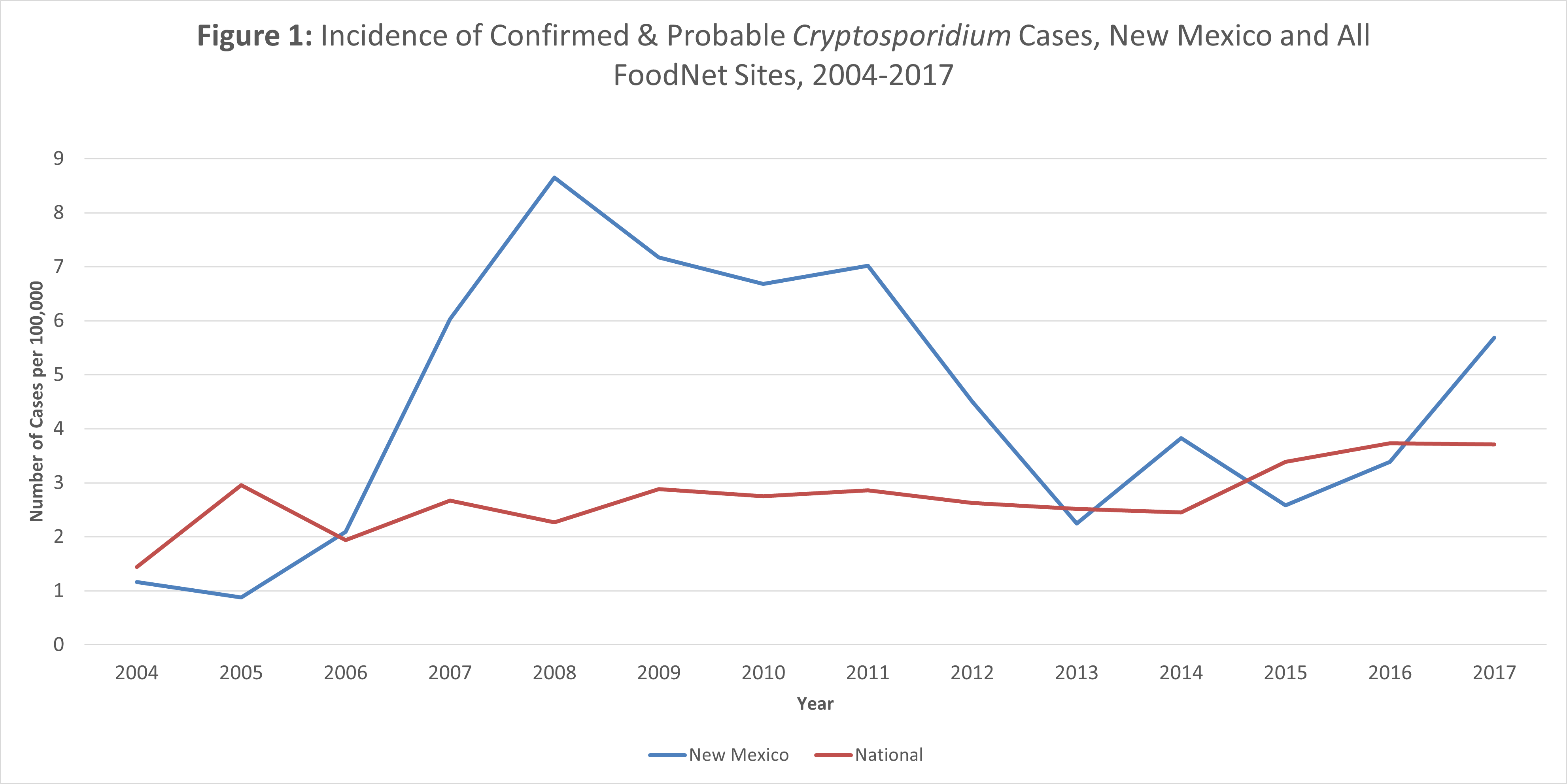Cryptosporidium
Cryptosporidiosis is a parasitic infection affecting the human gastrointestinal tract. The major signs and symptoms in humans include diarrhea with abdominal cramping, general malaise, fever, anorexia, nausea, and vomiting. For most healthy individuals these symptoms will stop in less than 30 days. Mode of transmission is typically fecal-oral, which includes person-to-person, animal-to-person, and waterborne or foodborne transmission. Laboratory confirmation is required.
Cryptosporidium Infection in New Mexico and the United States
Active, population-based surveillance for Cryptosporidium has been conducted throughout New Mexico since 2004 as part of the New Mexico Emerging Infections Program (NMEIP) FoodNet system. Medical records for residents of New Mexico with cryptosporidiosis are reviewed for demographic and other epidemiologic information. Through this surveillance system New Mexico FoodNet is able to examine and describe Cryptosporidiuminfections in the state. Data from New Mexico and other EIP FoodNet sites are aggregated by the Centers for Disease Control and Prevention to generate national estimates.
During 2017, there were 119 laboratory-confirmed cases of cryptosporidiosis identified in New Mexico, an overall rate of 5.69 per 100,000 population. The highest rate of infection was in the zero to four age group (11.01 per 100,000 population). Typically, cryptosporidiosis exhibits a seasonal increase from early summer through early fall.
Between 2006 and 2013, the infection rate in New Mexico is higher when compared with aggregate rates from all national EIP sites, with New Mexico rates returning to match the national average in 2013.
Please visit the New Mexico Infectious Disease Data page for additional data.


